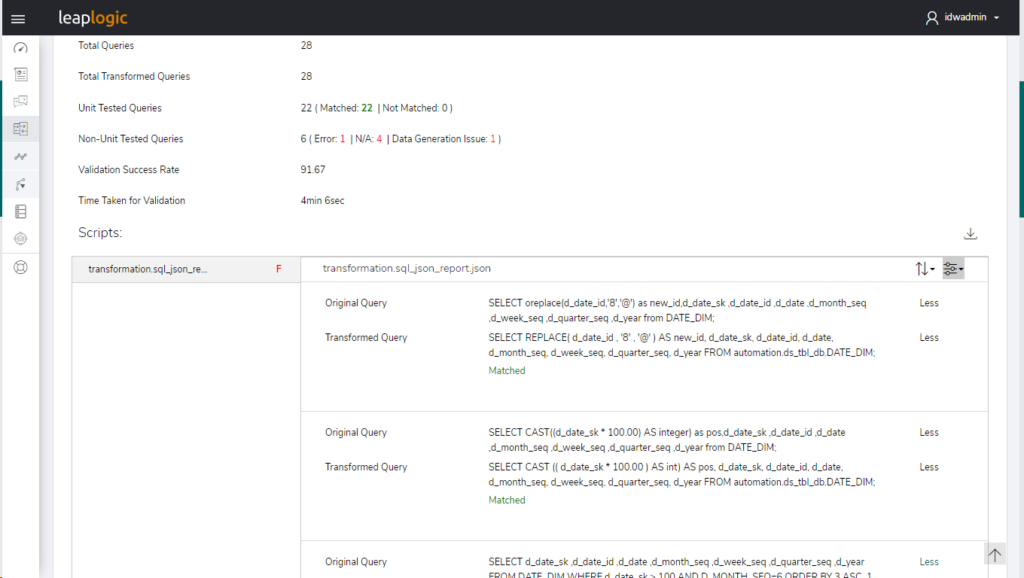Data estate modernization is typically a time-consuming and complex process, which requires extensive expertise and resources. Besides migrating SQL and data, enterprises must transform legacy workloads like queries, ETL, applications, reporting, and analytics to the chosen cloud environment or modern data platform. The converted code and business logic then need to be tested and validated on the target environment to ensure that all workloads perform correctly and meet the business SLAs. Any errors or issues identified during validation need to be addressed immediately, as these can lead to much-dreaded business disruption. This blog explores how automating the validation process can help businesses save time, effort, and money.













